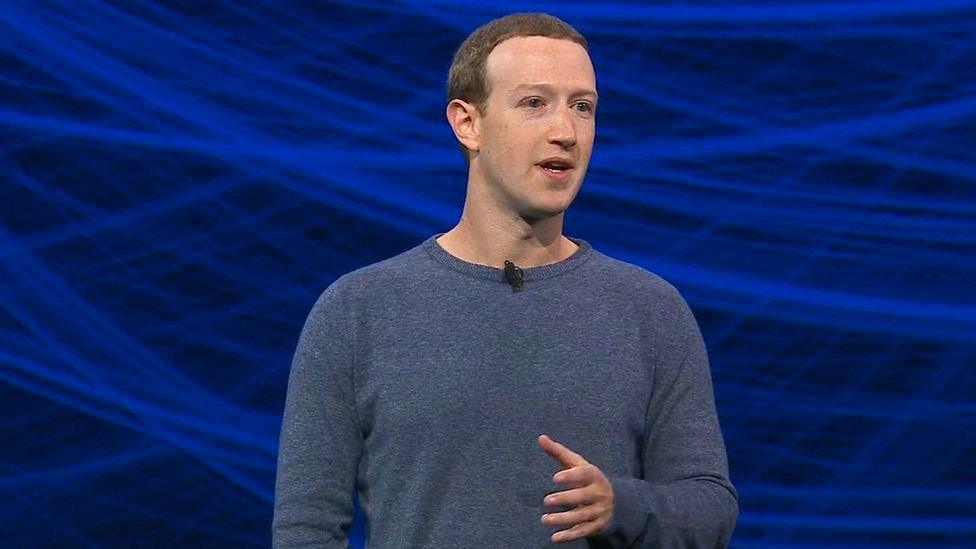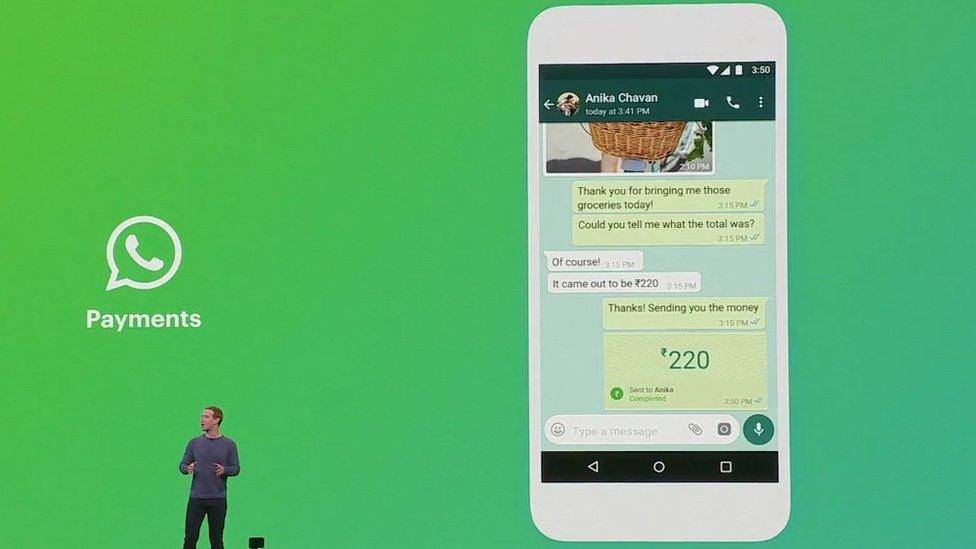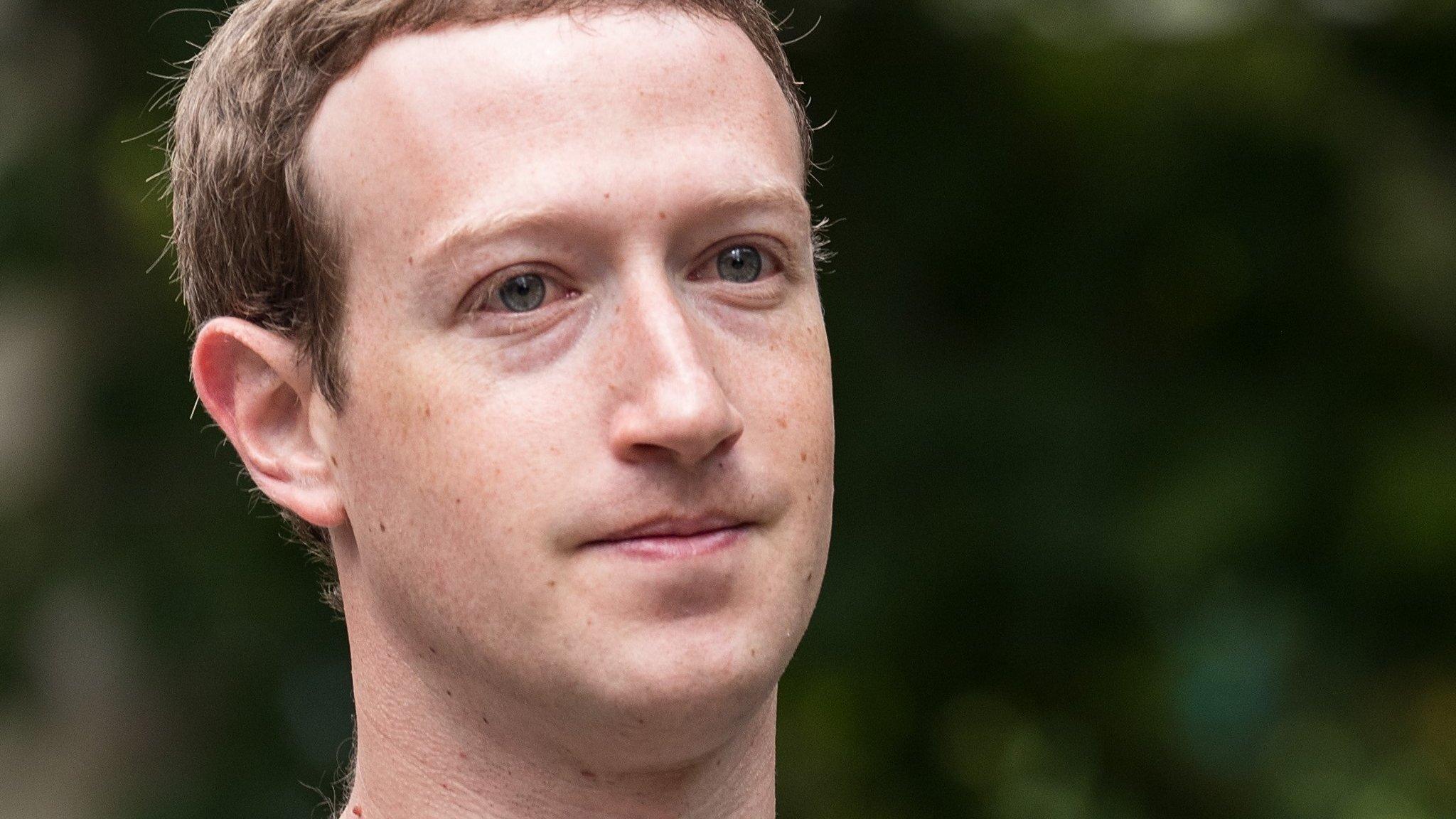Facebook boss reveals changes in response to criticism
- Published

Facebook boss Mark Zuckerberg has revealed a series of changes to the firm's portfolio of social platforms, including Instagram and Whatsapp.
The new designs and features for its apps are a direct response to widespread criticism of how the firm protects user data.
Mr Zuckerberg said the company plans to put privacy first.
He acknowledged that there was much to do to rebuild trust.
In a speech to developers, Mr Zuckerberg described the firm's new focus on privacy as "a major shift" in how the company is run.
Some of the more visible changes to those who use the firm's products will include:
Messages sent via Messenger will be end-to-end encrypted by default, meaning Facebook itself won't see the contents, and the platform will be fully integrated with WhatsApp
Instagram is trialling a "private like counts" feature which would hide the "likes" a post attracts from viewers, but not the account owner
There will be more "ephemeral" ways to share content in messages - meaning there will not be a permanent record of them
A WhatsApp secure payment service trialled in India is to be rolled out to other countries later this year.
The Facebook app is being redesigned to make community groups central to the newsfeed - and the distinctive blue branding is going. The redesign is rolling out in the US and then more widely straight away.
Instagram posts will no longer have to start with a photo or a video, it will be possible to share content using just text, stickers or drawings thanks to a new "create" camera mode.

WhatsApp's payment service
"The future is private," Mr Zuckerberg said - adding, in a nod to the tech giant's stream of privacy scandals: "I know we don't have the strongest reputation on privacy right now, to put it lightly".
He said Facebook was focused on looking at ways to encode privacy across the firm's entire infrastructure.
"It's not going to happen overnight and to be clear we don't have all the answers," he said.
He has previously said that he believes that people will want to talk privately in small groups and communities in the future.
However he will have to convince the public that Facebook is the place to do this, some commentators noted.
"The big question is how it will perform in a regulated social media world in 2019 and beyond," said social media consultant Matt Navarra.
"My verdict: it will go the distance and bounce back, but its reputation will remain in tatters for years to come."


Private private private - that's the future of Facebook, as Mark Zuckerberg has said before, but he offered more details today.
The design changes are the biggest refresh in around five years. It puts greater emphasis on groups and private interactions, encrypted messages that Facebook itself won't be able to access.
And, here's the big news... it will no longer be blue. The desktop apps show Zuckerberg has things like Apple's iMessage in his sights.
But Facebook needs to prove this is more than just a paint job if it's to get out of its current troubles.
Mark Zuckerberg made a brief mention about the company not having a good reputation on privacy right now - almost smirking as he said it. The company is working to regain trust, he insists.
At the same time it must show it continues to innovate even with all its bigger distractions. That's perhaps the bigger risk to Facebook here: while it's fixing its problems, competitors are working hard to gain ground.

Secret Crush
Other announcements included a new feature called Secret Crush, part of Facebook Dating, which will let Facebook members in some countries tag up to nine of their friends to whom they are attracted.
If the recipient of the crush is also using the feature and nominates them as well, then both parties will receive a message to say they have matched.
Facebook Dating will roll out in 14 new countries including the Philippines, Vietnam and Singapore. It is not currently available in Europe or the US.
Virtual Reality
WATCH: Dave Lee tries out the new Oculus Quest
The firm also revealed the launch date for its new stand-alone, wireless VR headset, Oculus Quest - which does not require a connection to a PC, smartphone or games console.
Mark Zuckerberg announced that everyone attending the conference would be given one as a gift.
It will go on general sale on 21 May.
"Facebook remains deeply committed to its vision for VR as the next computing platform despite a slow start," commented analyst Geoff Blaber from CCS Insight.
"New Oculus products will further refine the VR experience but there remains a disconnect between Facebook's vision and the reality which is dominated by gaming rather than social interaction."
- Published7 March 2019
